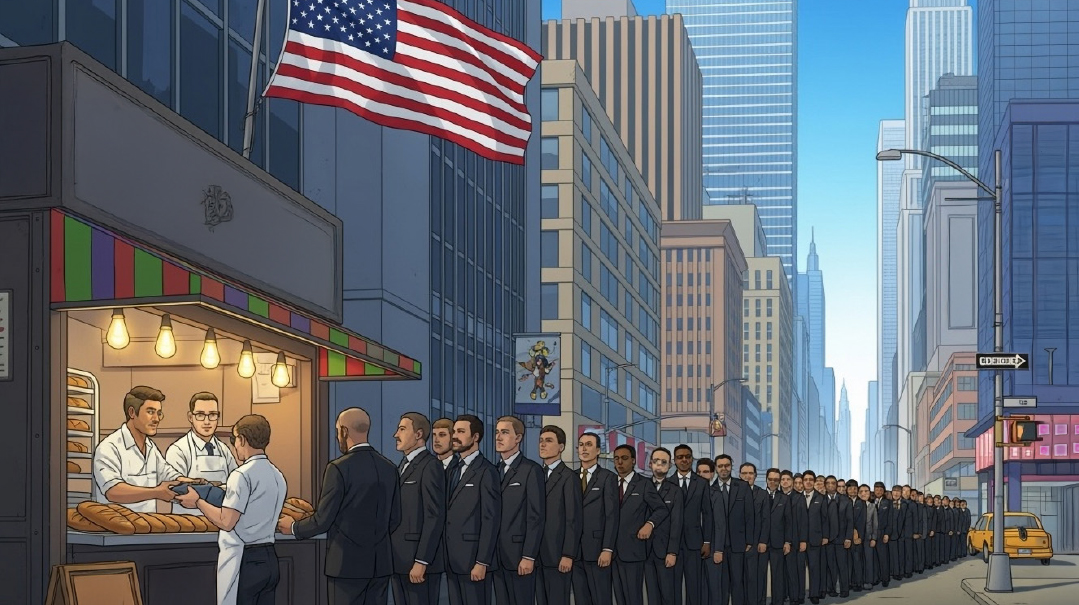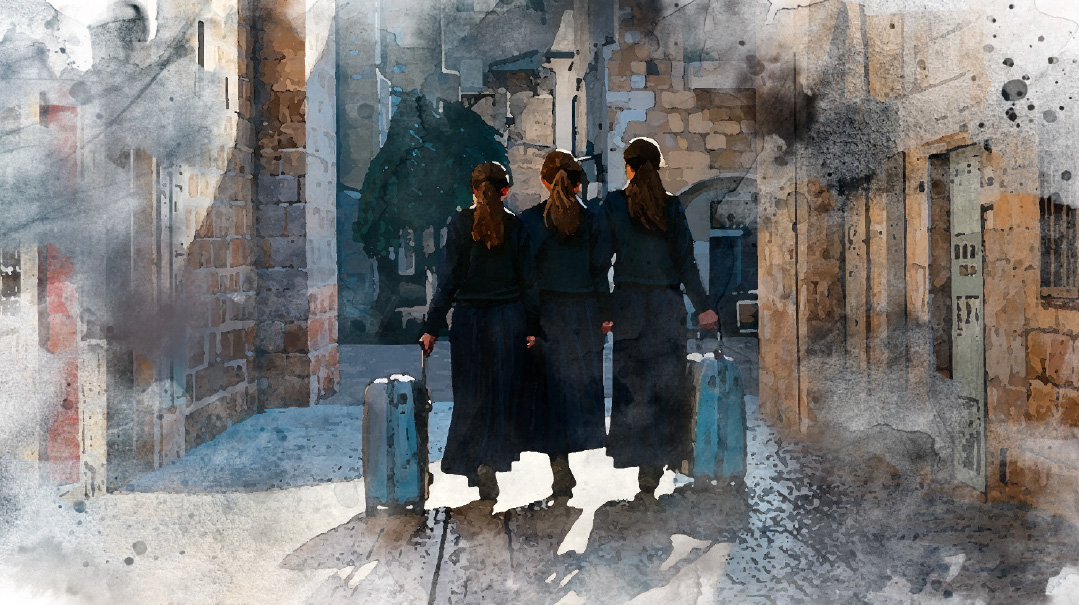Choose to Believe

If you do live here, you know what it means to choose to believe in the decency — or at least the pragmatism — of most of our neighbors

It’s a bright Monday morning in May and I’m waiting with two coworkers for a taxi to take us to the office.
Down the block, I spot one with the telltale orange sign of the Bar-Ilan taxi company in the windshield, and I flag it down.
Once we’re settled inside the car, I notice that the orange sign is not, in fact, the orange banner of Bar-Ilan — or of any company. It’s a microfiber rag artfully draped over the taximeter.
One of my coworkers notices, too, that the mandatory driver ID card has been pushed as high into its slot as possible, so the driver’s name isn’t visible.
We all know why.
Our driver’s name is Youssef, or Rashid, or Hakeem. He’s been driving his car around these streets for the last few days looking for work, with few takers. The usual passengers are scrutinizing every taxi these days, making sure the driver is a fellow Jew, waving him along when they realize he isn’t.
They’re all thinking of three faces, three fathers who were murdered with sickeningly medieval cruelty just last week, attacked with a knife and an axe — an axe! — on the quiet streets of the city of Elad.
One father, the first casualty, was actually slain inside his car. The car that he used to transport the two terrorists to what they said was an emergency construction job in the local shul. Once they reached their destination, they pulled out their crude weapons and turned his six children into orphans. Then they waited for the right moment to slip out of the car and hack away at two more families.
Our taxi turns onto Begin Boulevard and I wonder if the young driver currently behind the wheel is thinking about that other driver, the one with the crinkle-eyed smile and trusting face, who didn’t notice the axe and knife his passengers were concealing.
I assume this young man driving us to work is like most of humanity: frustrated by the traffic, relieved when the light turns green, happy when he gets a long drive to the airport that will net him a nice fare instead of a series of jerky stop-and-start trips through the jumble of city blocks. I figure he’s trying to get through the month, trying to make a living, trying to keep his taxi occupied so he can go home at the end of the day with enough money for rent and pita and fresh vegetables.
I wonder what he thinks of those two men (actually one was still a teen; his braces flashed when the cameras documented his capture) who looked their victims in the eye before they began slashing. Does he think they’re brave heroes? Despicable evildoers? Frustrated teens who took their blood-lusting education a step too far?
I guess most of us are wondering this, too, trying to wrap our minds around the horror that just happened and to which there seems no ready solution. The butchers in Elad, the shooters in Bnei Brak and Be’er Sheva, their fellow murderers and aspiring murderers — are they horrifying aberrations, or just natural products of the system? Do they provoke disgust, fear, even frustration, or do they spark triumph and adulation?
I steal a glance at the tense arms of the taxi driver navigating the morning traffic. I’ve chosen to believe that at heart, most of our neighbors just want a quiet life. I think most of us have chosen to believe it. We can’t really go on living here otherwise, brushing shoulders with them in our offices, on the train, and in the ER, sharing streets and heatwaves and municipal taxes.
Until some cosmic solution is found, for now we have to figure out how to live together in this land we both feel tied to. There’s no line — green or otherwise — separating our tangled, enmeshed existence. We cry our first cries in the same maternity wards and find our final rest in the same earth.
We are here together, walking the same sacred ground while racing on a shared hamster wheel of daily life. They are part of the scenery and part of the economy, there in the pharmacy, on the construction sites, and in our yeshivah kitchens. They are there cleaning the streets while we take the kids to kindergarten and there stocking the shelves (and answering questions about the shemittah status of the vegetables) in the grocery and there fixing the wiring when the neighborhood electricity goes down. If you recoil at that thought, if you can’t fathom that kind of proximity, can’t imagine stepping into the cab I took to work, what can I say? You don’t live here.
And if you do live here, you know what it means to choose to believe in the decency — or at least the pragmatism — of most of our neighbors. Because how long can you live with constant suspicion, constant fear, constant second-guessing? You can do it for a few weeks of “unrest” now, a month of “instability” last year, a “really bad couple of weeks” back then when the kids were little. Not forever.
So we choose to see the men with the axes and rifles and knives as lone actors sabotaging their nation’s chances rather than as celebrities acting out their dreams.
Are we deluding ourselves? Maybe we are.
But choosing to live here, we haven’t only chosen to believe in a decency that may not exist. We’ve also chosen to live in an ecosystem governed by different rules, different realities, and a tighter embrace from Above. So we hold fast to that knowledge, and try not to think too hard about the neighbors who’d likely prefer us gone. Is there any other way to keep living, working, raising children here in the land we love?
—Shoshana Friedman
Managing Editor
(Originally featured in Mishpacha, Issue 911)
Oops! We could not locate your form.






